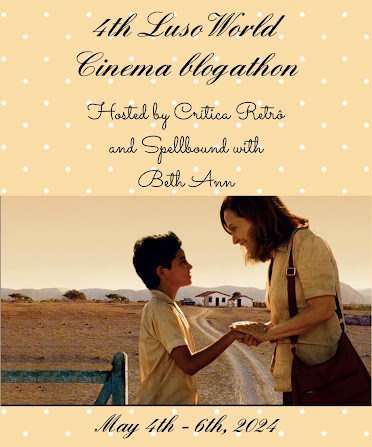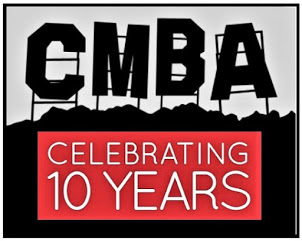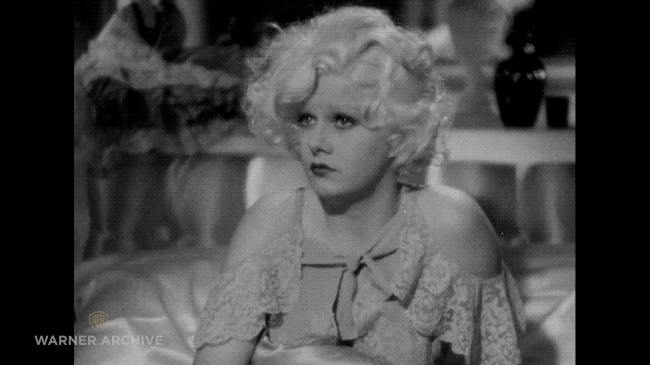*Spoiler Alert
Starting in 1936, leaders of the Soviet Union commissioned a series of show trials. These were public trials in which alleged enemies of the state were found guilty then executed.
They weren’t real trials, of course. Show trials are not about Justice; they are meant to Send A Message. In a show trial, no amount of evidence will change the predetermined Guilty verdict.
So it is in the case of The People v. Tom Robinson, where a black man is accused of raping a white woman in Depression-era Georgia.
You may have heard of this fictional court case. It’s from 1962 film To Kill a Mockingbird, based on the 1960 novel. The film stars Gregory Peck as Atticus Finch and Brock Peters as Tom Robinson, the Accused.
(Note: We’re focusing on the trial as presented in the film. Sadly, there’s no time to compare it to the novel.)
We first learn about the alleged assault when lawyer Atticus Finch does, on a summer evening as he sits alone on his front veranda, listening to his children through an upstairs window.
A judge (Paul Fix) unexpectedly drops by and says he’s thinking of appointing Atticus as Robinson’s defence attorney. This is a polite way of giving a direct order, but Atticus Finch doesn’t need to be ordered. He agrees to act as defence counsel.
The trial takes place on a hot summer day, and everyone in town has squeezed into the courtroom to watch Atticus at work. His questioning of witnesses is so thorough, we’re convinced Tom Robinson can’t lose.
Through cross examination, we learn Robinson’s accuser (Collin Wilcox) is a troubled woman. She’s poor, uneducated and married to a violent man. As Atticus questions her, we feel the rage she harbours. We wonder how much of her fury is meant for Robinson vs. the World At Large.
For example, she screams at spectators in the courtroom. “If you ain’t gonna do nothin’ about it, you’re just a bunch of lousy yellow stinkin’ cowards,” she cries.
As for the soft-spoken Robinson, his testimony must be coaxed out of him. He says he passed his accuser’s house daily as he walked to and from the fields where he worked. Then his accuser began asking for his help with her family’s chores. This placed him in a difficult position, made worse when she tried to seduce him.
By condemning Robinson, the accuser has inadvertently condemned the entire town. Atticus Finch makes this clear in his closing arguments.
First, he chides the prosecution for not providing enough evidence of the alleged crime. He then says the trial is actually about “a rigid and time-honoured code of our society. A code so severe that whoever breaks it is hounded from our midst.”
Atticus Finch gives the jury the opportunity to acquit an innocent man, but they pass.
They find Tom Robinson guilty.

No accolades for Atticus Finch today. Image: Pinterest.
When we hear the verdict, we realize Tom Robinson was never going to be acquitted. There is no defence against a time-honoured code.
Aside from that, Robinson is an unlikely force to be reckoned with, and not in a way anyone expected. In telling his version of events, Robinson says he found it strange there was no one to help his accuser with her chores. Then this:
Robinson: “I felt right sorry for her.”
Prosecutor: “You felt sorry for her? A white woman? You. Felt sorry for her.”
You see, Robinson’s sense of decency has just indicted white society. This makes him an enemy of the state.
Ironically, Robinson is the type of person who could inspire others to change their lives for the better – and he would have, in a real trial. But this wasn’t a real trial.
It was just for show.
To Kill a Mockingbird: starring Gregory Peck, John Megna, Frank Overton. Directed by Robert Mulligan. Written by Horton Foote. Universal-International Films, 1962, B&W, 129 mins.
This post is part of The Classic Courtroom Movies Blogathon hosted by CineMaven’s Essays from the Couch and Second Sight Cinema. Click HERE to see today’s fab entries.














Hello Silver Screenings ~ Thanks for your contribution to our blogathon! This is a classic. ( Oooh, the music is killer! )
LikeLike
Why thank you, CineMaven. Thanks for co-hosting this event!
LikeLiked by 1 person
Great piece — many thanks. I’m planning to read Lee’s Go Set a Watchman soonish to get yet another take on the events.
The sad thing is that I think far too many trials in our modern system are equally just show trials. If you follow sites like CEDP and The Innocence Project you find it’s quite horrific the level of people given heavy sentences as a result of trials every bit as pr-scripted as Tom Robinson’s, and these organizations are barely scraping the surface.
LikeLiked by 1 person
Go Set a Watchman is a book I haven’t yet read… I don’t want anything to change my cherished view of Atticus Finch as Gregory Peck in this film. 😉
Thanks so much for the sites you referenced. I’ll be looking them up this weekend.
LikeLiked by 1 person
Thanks for reminding us of this great film and the divide in society based on color.
LikeLiked by 1 person
It had been a long time since I’ve seen this film, so it was good to see it again. Thanks for dropping by!
LikeLike
Beautifully written piece! It’s a pity show trials still go on every day in our “justice” system.
LikeLiked by 2 people
You’re right. I think show trials happen more often than we like to think…
LikeLike
“To Kill a Mockingbird” is a story of so many aspects and layers. On its own, the trial is just as deep and disturbing. Thoughtful post.
LikeLiked by 2 people
You’re right – there is A LOT to say about this film (and novel). A person could spend hours discussing it.
Have you read “Go Set a Watchman”?
LikeLike
I haven’t read “Go Set a Watchman”. I’m not so sure that I want to. The experience of “Mockingbird” is so singular.
LikeLiked by 1 person
I agree. I just can’t bring myself to read it.
LikeLike
I would love to read your review, but I haven’t seen the movie yet, so I’d better start with that! But I’ll most certainly stop by as soon as I watch it! 🙂
LikeLiked by 1 person
Oh yes, please see the film. My review is one big spoiler, and it’s best to go into the movie fresh. Thanks anyway for dropping by. 🙂
LikeLiked by 1 person
It’s a tough movie for me to watch. Infuriating… poignant. I love how you laid it out in your essay. “…But this wasn’t a real trial.” Good God girl. You just drop kicked me to my knees!
LikeLiked by 2 people
Thanks, Theresa. It’s a movie I really, really wanted to write about for the blogathon. Can’t wait to start reading the entries tomorrow! 🙂
LikeLike
This is a classic movie and one I should have watched long before now. And the sad part is the only thing that has kept me from watching it is I never particularly cared for Gregory Peck. Yes, I reviewed Guns of Navarone earlier this year, which I like, and I absolutely loved Cape Fear (but more for Robert Mitchum than for Peck). Now, admittedly I don’t despise Peck and avoid his movies with a passion like I do Tom Cruise, but there has always been something about a Peck performance that turned me off. (I don’t like High Noon, but people think its one of the tops…) Now I mentioned in another person’s review of The Boys from Brazil that I actually loved his performance in it, although I had to confess I had forgotten it was he who was in the movie. Maybe I just don’t like goody-two-shoes…:-D. OK, I’ll give it a go sometime before the month is out and try to get back to you on it. Long winded reply, but it was a good review, and made a good point about the farce of the trial.
LikeLiked by 1 person
I’d be interested to hear what you think of this film if you do decide to give it a go. There are a few people who aren’t Gregory Peck fans, and that is A-OK.
Thanks for dropping by!
LikeLike
I love the book and the film, and that marvellous moment when the gallery stands for Atticus Finch as he leaves the courtroom, never fails to bring tears to my eyes.
LikeLiked by 2 people
You’re right – that is a marvelous moment, when everyone in the gallery stands for Atticus. It’s quite moving.
LikeLike
It’s a great scene in a great movie! I particularly like the end of the trial when Scout begins understand, to a small degree, what her father has stood up against.
LikeLiked by 1 person
Agreed. The kid who plays Scout was a brilliant choice, and she had a way of conveying these kinds of emotions/realizations.
LikeLike
This is brilliant. It was a show. And this: his “sense of decency…makes him an enemy of the state.” Ugh. So well done, this post. Love it.
LikeLiked by 1 person
Thanks, Sarah! It is a brilliant, tragic film. I picked up the novel on sale a few weeks ago & intend to re-read it this summer. It’ll be interesting to compare the trial in the film to the novel.
LikeLiked by 1 person
That will be fascinating. I’m embarrassed to say I haven’t read that book in…many, many years.
LikeLiked by 1 person
Me too! It’s been DECADES since I’ve read it.
LikeLiked by 1 person
Wonderful post – much food for thought.
LikeLiked by 1 person
Thanks! There is so much to say about this film, isn’t there?
LikeLike
Always a pleasure checking out your thoughtful posts 🙂
LikeLiked by 1 person
Thanks very much for dropping by and your kind comment. 🙂
LikeLike
This was splendid!
Robinson is, indeed, the kind of humble person who can teach a lot to us, even though at first we don’t expect such a thing to happen. Too bad he suffers a huge injustice – in a way, similar to Spencer Tracy in Fury.
Thanks for your kind comment!
Kisses!
Le
LikeLiked by 1 person
Yes, you’re right. It’s very similar to what I’ve read about Spencer Tracy’s character in Fury.
It would be interesting to make this film from Tom Robinson’s point of view.
LikeLike
I first saw this film soph year in high school and while I was shocked as to how different the novel was (I enjoyed it) the one thing I did love was Gregory Peck- I didn’t know who he was at the time- but I knew I liked him. Watching it today- the film is marvelous in its own right!
LikeLiked by 1 person
I agree – the film is marvelous in its own right. I recently picked up the novel to re-read, since it’s been years, and I’m curious to see how it aligns (or doesn’t) with the film.
And Gregory Peck – the perfect choice for Atticus Finch, no?
LikeLiked by 1 person
TKAM will never get old. I studied this for English in school and it was just so thought provoking. The themes of prejudice and childhood stick with you for life.
Harper Lee was a great person for writing this book at such a time where things like this where actually happening!
Good post!
LikeLiked by 1 person
Thanks for dropping by! I agree that the themes of prejudice in this novel stick with you for life.
How did you find the English in this book? Was it much different than the English you studied in other texts?
LikeLiked by 1 person
Well, it’s certainly a lot more southern that Shakespeare!
In English, we read multiple texts which the teachers feel have depth and you can write an essay on. So I have studied many books, and Shakespeare is my favourite!
Romeo and Juliet – so moving! But not realistic!
I fell in love with Atticus 🙂
I’m a university student now so I don’t study English anymore. But, I have read Go set a watchman – still need to finish it!
LikeLiked by 1 person